THE PARTY IS OVER

THE
PARTY

IS

OVER
HOW REPUBLICANS WENT CRAZY,
DEMOCRATS BECAME USELESS,
AND THE MIDDLE CLASS GOT SHAFTED
Mike Lofgren
VIKING
VIKING
Published by the Penguin Group
Penguin Group (USA) Inc., 375 Hudson Street, New York, New York 10014, U.S.A.  Penguin Group (Canada), 90 Eglinton Avenue East, Suite 700, Toronto, Ontario, Canada M4P 2Y3 (a division of Pearson Penguin Canada Inc.)
Penguin Group (Canada), 90 Eglinton Avenue East, Suite 700, Toronto, Ontario, Canada M4P 2Y3 (a division of Pearson Penguin Canada Inc.)  Penguin Books Ltd, 80 Strand, London WC2R 0RL, England
Penguin Books Ltd, 80 Strand, London WC2R 0RL, England  Penguin Ireland, 25 St. Stephens Green, Dublin 2, Ireland (a division of Penguin Books Ltd)
Penguin Ireland, 25 St. Stephens Green, Dublin 2, Ireland (a division of Penguin Books Ltd)  Penguin Books Australia Ltd, 250 Camberwell Road, Camberwell, Victoria 3124, Australia (a division of Pearson Australia Group Pty Ltd)
Penguin Books Australia Ltd, 250 Camberwell Road, Camberwell, Victoria 3124, Australia (a division of Pearson Australia Group Pty Ltd)  Penguin Books India Pvt Ltd, 11 Community Centre, Panchsheel Park, New Delhi 110 017, India
Penguin Books India Pvt Ltd, 11 Community Centre, Panchsheel Park, New Delhi 110 017, India  Penguin Group (NZ), 67 Apollo Drive, Rosedale, Auckland 0632, New Zealand (a division of Pearson New Zealand Ltd)
Penguin Group (NZ), 67 Apollo Drive, Rosedale, Auckland 0632, New Zealand (a division of Pearson New Zealand Ltd)  Penguin Books (South Africa) (Pty) Ltd, 24 Sturdee Avenue, Rosebank, Johannesburg 2196, South Africa
Penguin Books (South Africa) (Pty) Ltd, 24 Sturdee Avenue, Rosebank, Johannesburg 2196, South Africa
Penguin Books Ltd, Registered Offices:
80 Strand, London WC2R 0RL, England
First published in 2012 by Viking Penguin,
a member of Penguin Group (USA) Inc.
1 3 5 7 9 10 8 6 4 2
Copyright Michael Lofgren, 2012
All rights reserved
Portions of this book appeared in different form as
Goodbye to All That: Reflections of a GOP Operative Who Left the Cult,
Truthout, September 3, 2011.
LIBRARY OF CONGRESS CATALOGING IN PUBLICATION DATA
Lofgren, Mike.
The party is over : how Republicans went crazy, Democrats became useless,
and the middle class got shafted / Mike Lofgren.
p. cm.
Includes bibliographical references and index.
ISBN: 978-1-101-60123-5
1. Republican Party (U.S. : 1854)History20th century. 2. Republican Party (U.S. : 1854)History21st century. 3. Democratic Party (U.S.)History20th century. 4. Democratic Party (U.S.)History21st century. 5. Political partiesUnited StatesHistory20th century. 6. Political partiesUnited StatesHistory21st century. I. Title.
Printed in the United States of America
Set in Haarlemmer MT Std with Memphis LT Std
Designed by Daniel Lagin
No part of this book may be reproduced, scanned, or distributed in any printed or electronic form without permission. Please do not participate in or encourage piracy of copyrighted materials in violation of the authors rights. Purchase only authorized editions.
ALWAYS LEARNING
PEARSON
This book is dedicated to the memory of
Earnest Walter Lofgren
Son of working-class Swedish immigrants, child of the Great Depression, honorable veteran of the Pacific campaign, beneficiary of the GI Bill of Rights, and holder of an advanced university degree, for patiently endeavoring to instill in his children his abiding belief in learning
CONTENTS
INTRODUCTION
T his book is about Americas broken political system: how it got that way, who benefits, and who loses. It is about the growing domination of the legislative process by corporate money and the corresponding decline of a broad public interest. It is about how politicians use intensely polarizing ideological issues as bait to energize their political basesand to divert those followers away from focusing on the one overriding political issue in our society: who gets what.
As Americas political dysfunction has grown worse, the economic stagnation of the middle class has deepened. This is not a result of blind economic forces, Adam Smiths invisible hand, globalization, or some other nebulous cause. Specific committees of Congress, inevitably assisted by specific K Street lobbyists, wrote legislation that achieved this result.
Why am I so sure of what I say? I worked in Congress for twenty-eight years, most of the time as a professional staff member analyzing legislation for the House and Senate budget committees. For the first twelve years I worked for John Kasich, a Republican member of the House Armed Services Committee, and my fiefdom was national security. Then I switched to the House Budget Committee when Kasich became chairman. Finally, I moved to the Senate Budget Committee under the chairmanship of Senator Judd Gregg (R-New Hampshire). My duties gave me an invaluable perspective on government budgeting, and particularly on budgeting for national security. And they enabled me to understand that when politicians claim they will cut taxes, wage war around the planet, and balance the budget at the same time, they are spouting rank falsehoods. I was in the privileged position to see how Congress works on the inside, when the C-SPAN cameras are turned off. What I saw was not Civics 101 or Jeffersons Manual but an auction where political services are won by the highest bidder.
I was compelled to write this book because I became alarmed by the trends I was seeing. In particular, my own party, the Republican Party, began to scare me. After the 2008 election, Republican politicians became more and more intransigently dogmatic. They doubled down on advancing policies that transparently favored the top 1 percent of earners in this country while obstructing measures such as the extension of unemployment insurance. They seemed to want to comfort the comfortable and afflict the afflicted in the middle of the worst economic meltdown in eighty years.
And there was worse to come. Whether it was Representative Joe Wilson (R-South Carolina) boorishly yelling You lie!unprecedented behavior during a joint meeting of Congress assembled to hear a presidential addressor the obscene carnival of birtherism, Obama-the-secret-Muslim, death panels, and all the rest of it, the party took on a nasty, bullying, crazy edge. From my vantage point on the budget committee I watched with a mixture of fascination and foreboding as my party was hijacked by a new crop of opportunists and true believers hell-bent on dragging the country into their jerry-built New Jerusalem: an upside-down utopia in which corporations rule; the Constitution, like science, is faith based; and war is the first, not the last, resort in foreign policy.
I suspect many of these politicians never believed what they were saying but were cynically playing to an increasingly deranged political base that does believe it. Television viewers could observe the outcome of this strategy in September 2011, when the partisan audience invited to view the Republican presidential candidates debate at the Reagan Library in California cheered and clapped at the mentions of executions and the prospect of letting the uninsured die.

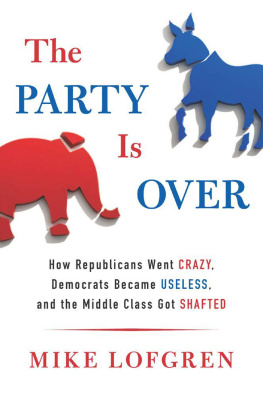
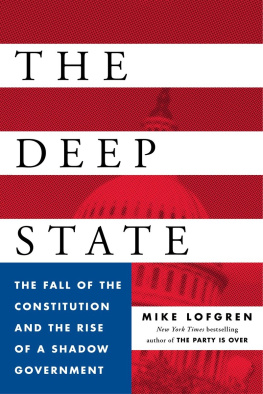
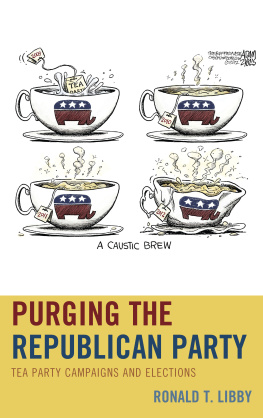
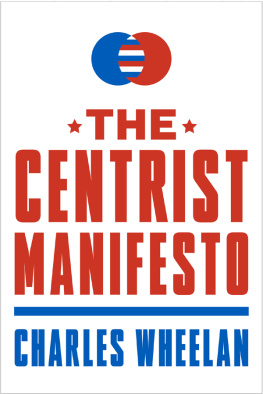
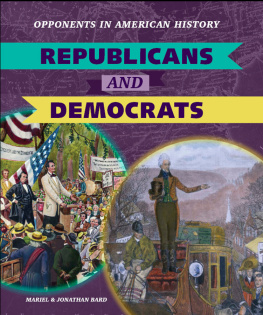

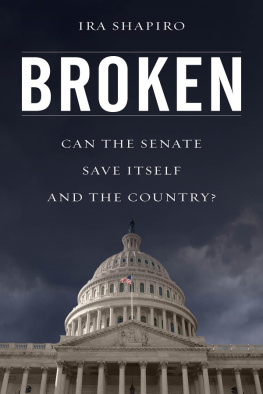
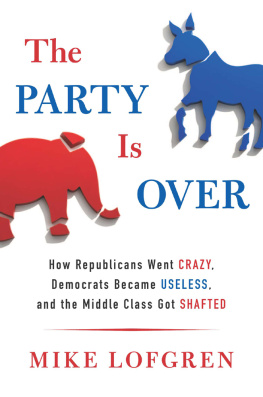

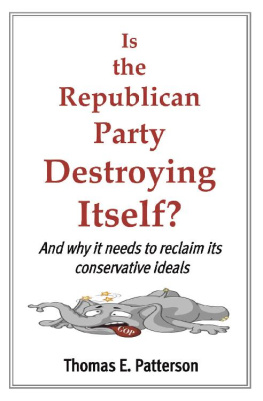
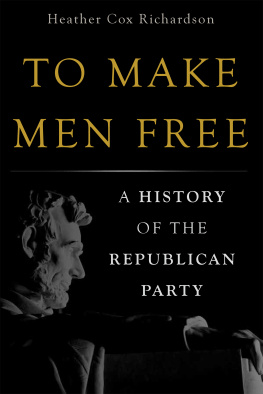

 IS
IS  Penguin Group (Canada), 90 Eglinton Avenue East, Suite 700, Toronto, Ontario, Canada M4P 2Y3 (a division of Pearson Penguin Canada Inc.)
Penguin Group (Canada), 90 Eglinton Avenue East, Suite 700, Toronto, Ontario, Canada M4P 2Y3 (a division of Pearson Penguin Canada Inc.)